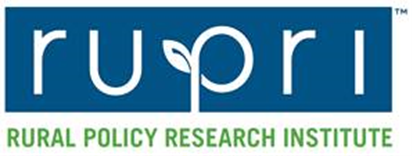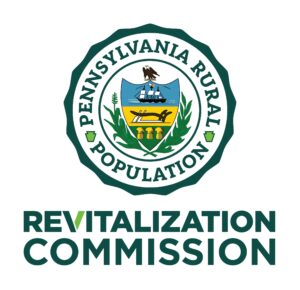- CMS: Medicare Program; Implementation of Prior Authorization for Select Services for the Wasteful and Inappropriate Services Reduction (WISeR) Model
- Public Inspection: CMS: Medicare Program: Implementation of Prior Authorization for Select Services for the Wasteful and Inappropriate Services Reduction Model
- CMS: Secretarial Comments on the CBE's (Battelle Memorial Institute) 2024 Activities: Report to Congress and the Secretary of the Department of Health and Human Services
- HHS: Patient Protection and Affordable Care Act: Marketplace Integrity and Affordability
- HRSA Announces Action to Lower Out-of-Pocket Costs for Life-Saving Medications at Health Centers Nationwide
- Public Inspection: HHS: Patient Protection and Affordable Care Act: Marketplace Integrity and Affordability
- Increased Risk of Cyber Threats Against Healthcare and Public Health Sector
- Eight Hospitals Selected for First Cohort of Rural Hospital Stabilization Program
- Announcing the 2030 Census Disclosure Avoidance Research Program
- CMS: Medicare Program; Hospital Inpatient Prospective Payment Systems for Acute Care Hospitals and the Long-Term Care Hospital Prospective Payment System and Policy Changes and Fiscal Year 2026 Rates; Requirements for Quality Programs; and Other Policy Changes; Correction
- CMS: Medicare Program; Hospital Inpatient Prospective Payment Systems for Acute Care Hospitals and the Long-Term Care Hospital Prospective Payment System and Policy Changes and Fiscal Year 2026 Rates; Requirements for Quality Programs; and Other Policy Changes; Correction
- CMS: Medicare and Medicaid Programs; Contract Year 2026 Policy and Technical Changes to the Medicare Advantage Program, Medicare Prescription Drug Benefit Program, Medicare Cost Plan Program, and Programs of All-Inclusive Care for the Elderly; Correction
- CMS: Medicare and Medicaid Programs; Contract Year 2026 Policy and Technical Changes to the Medicare Advantage Program, Medicare Prescription Drug Benefit Program, Medicare Cost Plan Program, and Programs of All-Inclusive Care for the Elderly; Correction
- CMS: Medicare Program; Prospective Payment System and Consolidated Billing for Skilled Nursing Facilities; Updates to the Quality Reporting Program for Federal Fiscal Year 2026
- CMS: Medicare Program; FY 2026 Hospice Wage Index and Payment Rate Update and Hospice Quality Reporting Program Requirements
New Funding: HRSA Rural Program of All-Inclusive for the Elderly Planning and Development

The Rural Program of All-Inclusive for the Elderly (PACE) Planning and Development, a new program from HRSA’s Federal Office of Rural Health Policy (FORHP), is open and accepting applications for the program’s 4-year period of performance (September 30, 2025 – September 29, 2029). HRSA will make up to 4 awards, up to $500,000 per year, to provide resources to assist with the development of an initial Centers for Medicare and Medicaid (CMS) PACE program serving HRSA-designated rural areas or to expand an existing certified CMS PACE programs into HRSA-designated rural areas through PACE service area expansion. The goal of the program aims to improve access to, and delivery of, comprehensive and sustainable medical and social services for adults 55 and older living in rural areas.
Eligible applicants include all domestic public and private, nonprofit, or for-profit, entities with demonstrated experience serving, or the capacity to serve, rural underserved populations.
CMS PACE is a model of care that helps people meet their health care needs in the community instead of going to a nursing home or other care facility. PACE provides, and are financially responsible for, all health care services their enrollees. This includes providing care management to enrollees at a PACE center organization that serves as a central hub for adult day care services where enrollees can receive primary care, therapy, meals, recreation, and socialization. According to the National Advisory Committee on Rural Health and Human Services 2023 policy brief, the start-up and application process to become a certified PACE provider with CMS may present some challenges in rural areas.
A technical assistance webinar via Zoom is scheduled for applicants on Tuesday, February 11, 2025, at 2:30 pm Eastern. If you are unable able to join the webinar, a recording will be made available later.
Apply by April 17, 2025.
For more information about this funding opportunity, contact RuralPACE@hrsa.gov
Helpful links:
Just Released! American Cancer Society’s Cancer Statistics 2025

The American Cancer Society has released key findings from Cancer Statistics 2025 and its consumer-friendly companion, Cancer Facts & Figures 2025. The report, published annually since 1951, is considered the gold standard for cancer surveillance information, with timely cancer findings to help improve the lives of people with cancer.
This year’s report shows the cancer mortality rate declined by 34% from 1991 to 2022 in the United States, averting approximately 4.5 million deaths.
However, this steady progress is jeopardized by increasing incidence for many cancer types, especially among women and younger adults, shifting the burden of disease. For example, incidence rates in women 50-64 years of age have surpassed those in men, and rates in women under 50 are now 82% higher than their male counterparts, up from 51% in 2002. This pattern includes lung cancer, which is now higher in women than in men among people younger than 65 years.
These important findings are published in the January 16 issue of CA: A Cancer Journal for Clinicians, alongside Cancer Facts & Figures 2025, available on cancer.org.
See the full report at: Cancer Facts and Statistics | American Cancer Society
HealthHIV’s Fourth Annual State of Aging with HIV™ National Survey Released
HealthHIV’s Fourth Annual State of Aging with HIV™ National Survey examines crucial issues affecting people aging with HIV (PAWH) and the workforce that supports them. The findings reveal four interconnected challenges: financial precarity and persistent insurance gaps that block access to essential care, declining quality of life driven by widespread mental health challenges, a shortage of aging-focused services leaving caregivers and communities unsupported, and rising frustration with the healthcare system and insufficient government protections.
The survey examines crucial issues facing long-term survivors and adults aging with HIV. For the first time, this survey has two population focuses—one that reached the PAWH community and one that reached the workforce that provides health and human services to the population. Survey data was collected between August and September 2024 and included responses from 907 participants. HealthHIV conducted the survey as part of its Pozitively Aging program, which is supported by Gilead’s HIV Age Positively Initiative.
Key findings include:
- Financial precarity and persistent insurance gaps impact the vast majority of PAWH and block access to essential care: Nearly half of respondents lack a financial plan for retirement, and the majority of those who have one are unsure if it will cover potential long-term care needs. Over three-quarters avoided or delayed seeking medical care in the last year due to concerns about insurance coverage or out-of-pocket costs.
- Continued decline in quality of life for many PAWH, largely driven by mental health challenges such as depression and anxiety: More than three-quarters (76%) of PAWH experienced moderate to high mental health stress over the last six months, and mental health diagnoses, like depression or anxiety, were the second most common comorbidity impacting PAWH.
- The gap is widening between aging services and the specific needs of PAWH, leaving them and their caregivers unsupported and without tailored resources, training or support: Most organizations recognize the need for aging-focused services, but many haven’t implemented them. Over half of providers believe that informal caregivers of older persons with HIV lack necessary support. Broader aging services are fragmented from HIV-specific programs like Ryan White, especially with transitions to Medicare.
- Increasing discontent and anger with the health care system reflects widespread community fatigue and insufficient government protections: Most PAWH (72%) feel the government isn’t adequately addressing their needs, and the vast majority of all respondents—97% of providers and 88% of community members—call for enhanced advocacy efforts for the aging HIV community.
In coordination with HealthHIV’s Pozitively Aging program, findings from this survey will be used in the creation of vital education and training materials for the HIV care workforce and will inform advocacy and research priorities for the coming year surrounding those aging with HIV.
Click here to access the full report.
Pennsylvania Partnerships for Children Releases Policy Roadmap

In December, the PPC Board of Directors approved our 2025-26 Policy Roadmap that aligns with our organizational mission to improve the health, education, and well-being of children and youth in the commonwealth.
Ensuring each child living in Pennsylvania can reach their full potential means that PPC is committed to policy choices that improve maternal and child well-being, advance racial equity and support families disproportionately impacted by poverty.
Our work to advance equitable policy solutions and prioritize the well-being of Pennsylvania children and families remains as important as ever because we can’t achieve our goals if any child is left behind.
Learn more about our priorities in these five policy areas:
- Child Welfare: Ensure each child in Pennsylvania has the opportunity to grow up in a home where they are safe and protected from abuse and neglect.
- Early Care and Education: Ensure each child in Pennsylvania has the opportunity to participate in affordable and accessible high-quality early care and education, including infant and toddler child care and pre-kindergarten education.
- Home Visiting: Ensure each child in Pennsylvania has the opportunity to grow up in a stable and healthy home environment.
- K-12 Education: Ensure each child in Pennsylvania has the opportunity for an adequate and equitable high-quality public education.
- Perinatal and Child Health: Ensure each parent and child in Pennsylvania can access affordable, quality health care.
View the new Policy Roadmap here.
Pennsylvania Announces Digital Connectivity Technology Program Funding: Round Two

In June 2024, the PBDA opened the Capital Projects Fund – Digital Connectivity Technology (Technology) Program. This program utilized $20 million of the $279 million in the Capital Projects Fund that were allocated to Pennsylvania through the American Rescue Plan Act (ARPA) of 2021.
In November 2024, the PBDA distributed over 9,000 laptops to 117 applicants, across 42 counties. These entities included libraries, municipalities, workforce training organizations, not-for-profit organizations, other community anchor institutions, in areas where affordability is a barrier. For details on the first round of approved applicants, please visit the Digital Connectivity Technology Program page.
The PBDA will open a second round of the Technology Program beginning April 1, 2025, to distribute the remaining laptops. In preparation for this second round, there will be two webinars which will provide an overview of the program, review FAQs, and outline any updates to the guidelines. Additional information for these webinars is provided in the attached flyer.
Should you have additional questions or needs, please contact the PBDA at pbda_capitalprojectsfund@pa.gov.
Updated Banking Desert Dashboard Published

While the popularity of online banking has grown, physical banking still plays an important role for many consumers. A lack of access to banking services can mean losing opportunities to improve financial health and build wealth.
Originally created by Alaina Barca and colleagues from the Federal Reserve Banks of Philadelphia and Cleveland, the Banking Deserts Dashboard has just been updated. Those updates include the release of 2024 banking desert data, and user experience improvements like an underlying base map to better orient users to census tract locations and an overall friendlier user experience.
Check out the dashboard to identify banking deserts and potential banking deserts across the United States. Across the nation, all the way down to counties, this dashboard uses census tract data to paint a geographical picture of where deserts and potential deserts are located.
A New Legislative Session – An Ongoing Commitment to Oral Health

A new legislative session in Pennsylvania kicked off last week, launching a two-year period for lawmakers to address critical priorities in the commonwealth. Amidst a variety of issues set for debate, PA Coalition for Oral Health remains dedicated to advancing policy changes that strengthen oral health infrastructure in Pennsylvania.
To guide our advocacy efforts, we are introducing the PCOH 2025 Policy Agenda. Shaped by PCOH strategic goals, this is our roadmap to promote better oral health outcomes across Pennsylvania.
New from the RUPRI Center for Rural Health Policy Analysis Medicare Advantage Enrollment Update 2024

This policy brief continues RUPRI Center’s annual update of Medicare Advantage (MA) enrollment including the changes in enrollment in types of MA plans, and health policy changes that may have had an impact.
Key Findings:
- Medicare Advantage (MA) enrollment now exceeds 50 percent of eligible beneficiaries (enrolled in both Part A and Part B) in metropolitan counties (56.1 percent); at the current rate of growth, nonmetropolitan enrollment is expected to exceed 50 percent (currently 48.1 percent) next year, in 2025.
- While the annual rate of MA growth continues to exceed the rate of growth in total Medicare eligible beneficiaries, it has moderated somewhat from previous years.
- Much of the growth in nonmetropolitan MA enrollment has been in plans using local preferred provider organizations (PPOs), accounting for a majority of MA enrollees in nonmetropolitan counties since 2022.
Click here to read the full brief.
Additional products:
- Medicare Advantage Enrollment Updates: https://ruprihealth.org/maupdates/enrollment.html
- Medicare Advantage, National and State Enrollment Tables and Maps: https://ruprihealth.org/maupdates/nstablesmaps.html
Authors: Fred Ullrich, BA; and Keith Mueller, PhD
For more information, contact:
Keith J. Mueller, PhD; keith-mueller@uiowa.edu
Director, RUPRI Center for Rural Health Policy Analysis
University of Iowa College of Public Health
Office: 1.319.384.3832
Pennsylvania Rural Population Revitalization Commission Launched

The Center for Rural Pennsylvania Board of Directors, alongside the Pennsylvania Rural Population Revitalization Commission, held an inaugural press conference on January 9, 2025 at the Erie Crossroads Conference Center at the Pennsylvania Farm Show Complex and Expo Center in Harrisburg. The event recognized and officially swore in the appointees to the Commission and highlighted its critical mission to address population decline and the challenges facing rural regions in Pennsylvania.
Established by Act 21 of 2024, legislation with bicameral, bipartisan support, the Commission is tasked with creating reviews and recommendations to attract and retain residents in rural areas. Its work will focus on addressing the challenges posed by population shifts and changing demographics in rural communities across the Commonwealth. The Commission will also recommend necessary legislative and regulatory changes to support rural revitalization.
This Commission will play a vital role in informing medium- and long-term planning at the county, regional, and state levels. Commission findings will guide efforts to address policy issues such as workforce availability, housing, healthcare, education, and transportation.
“The Rural Population Revitalization Commission is a first-of-its-kind initiative established to make Pennsylvania a national leader in retaining, attracting, and revitalizing the population of our rural communities,” said Senator Gene Yaw, Chairman of the Center for Rural Pennsylvania Board of Directors. “This collaborative effort is a critical step towards reversing population decline and pressures facing our rural communities and will provide the foundation for long-term success.”
“The Rural Population Revitalization Commission demonstrates what’s possible when legislators work across party and chamber lines for the good of Pennsylvanians,” said Representative Eddie Day Pashinski, Vice Chairman of the Center for Rural Pennsylvania Board of Directors. “I believe these talented commissioners from across rural PA are up to the task of identifying what’s working and what needs to change to improve the well-being of all our current—and future—residents. Through their work and the support of policymakers, this commission can make Pennsylvania a national leader in addressing rural population change.”
“From education to healthcare to transportation, the Commission’s findings will have a far-reaching impact, ensuring that rural Pennsylvania remains an attractive and viable place to live and work,” said Senator Judy Schwank, member of the Center for Rural Pennsylvania Board of Directors and Pennsylvania Rural Population Revitalization Commission. “In facing the pressures of population decline, it is imperative that we think not just about today, but about tomorrow. Planning and collaboration will be the foundation of our efforts.”
“Our report clearly shows Pennsylvania’s rural communities in decline,” said Representative Dan Moul, member of the Center for Rural Pennsylvania Board of Directors. “The Commission is tasked with finding solutions that will turn that around. One of the biggest obstacles will be government regulations that slow down progress and increase costs. I am hopeful they can cut through the red tape and find ways to reverse course.”
“It is an honor and privilege to serve as Chairman of the Commission, and I am confident that the appointees of this Commission will work tirelessly to achieve success in finding solutions,” said Dr. Kyle C. Kopko, Chairman of the Pennsylvania Rural Population Revitalization Commission and Executive Director of the Center for Rural Pennsylvania. “This Commission has the opportunity to turn the challenges facing rural communities in Pennsylvania into opportunities for revitalization, crafting meaningful recommendations that ensure the long-term vitality of our rural areas.”
The Commission’s collaborative approach, which includes input from state and local officials, nonprofit groups, business leaders, and industry experts, is essential for ensuring that rural Pennsylvania remains resilient in the years to come.
Commission appointees include:
- Dr. Kyle C. Kopko, Chairman, Pennsylvania Rural Population Revitalization Commission; Executive Director, Center for Rural Pennsylvania
- Senator Judy Schwank
- Senator Judy Ward
- Representative Paul Takac
- Representative Michael Stender
- Albert Abramovic, Venango County Commissioner
- Betsy McClure, Greene County Commissioner
- Janet Pennington, School Board Member, Southeastern Greene School District
- Mark Critz, Western Regional Director, Pennsylvania Department of Agriculture; Executive Director, Pennsylvania Rural Development Council
- Drew Popish, Northeast Regional Director, Office of Governor Shapiro
- Lisa Davis, Director, Pennsylvania Office of Rural Health
- Dr. Karen Riley, President, Slippery Rock University of Pennsylvania
- Jordan Grady, President, Butler County Chamber of Commerce
- Gina Suydam, President, Wyoming County Chamber of Commerce
- Nathan Lesh, Vice President, Pennsylvania Future Farmers of America
For more information, visit www.rural.pa.gov/commission.
Pennsylvania’s BEAD Program Application Deadline EXTENDED, Important Updates

The BEAD Program Application Period One deadline has been extended to Friday, February 7, 2025, at 11:59 PM. Late or incomplete applications will not be evaluated.
The Pennsylvania Broadband Development Authority (PBDA) maintains a robust list of Frequently Asked Questions which are updated regularly. We encourage those interested in applying to check back often for new information.
Additionally, please note the following important program updates:
- Option to designate Broadband Serviceable Areas (BSAs) as non-separable in a multi-BSA project.
Applicants that have a project area with multiple BSAs have the option to designate which of those BSAs are non-separable for the project to remain viable. Non-separable BSAs are defined as BSAs critical to an applicant’s proposed project, and if removed by PBDA during deconfliction, then the proposed project is no longer viable and should not be considered any further by PBDA.
An applicant has the option to designate non-separable BSAs by utilizing version two of the template provided to answer application question 30 on Proposed Project BSAs. For a multi-BSA project, list the critical non-separable BSAs in column F.
- The Engineer Certification Affidavit, Proposed Project BSAs, and Proposed Project BSL templates have been revised, and a new template for Final Project CAIs are available.
If you already started an application utilizing the prevision version of the templates, please download and use these updated documents: BEAD Fillable Templates Library
- Recent Guidance from NTIA on Alternative Technologies
The National Telecommunications and Information Administration (NTIA) recently released guidance on use of alternative technologies as it relates to the BEAD program. That information can be reviewed at: NTIA BEAD Alternative Broadband Technology Policy Notice
- Prevailing Wage Requirements for Broadband Projects
The Pennsylvania Department of Labor and Industry recently provided additional clarity for prevailing wage requirements, as it relates to all awarded broadband projects. If you have additional questions or need further clarity, please reach out to the Department at 1.800.932.0665 or by email at pwquestions@pa.gov.
Please note, to ensure fairness and consistency for all BEAD applicants, the PBDA is unable to accommodate individual meetings while the program is open for applications. PBDA encourages applicants to send any questions to the BEAD Resource Account.
